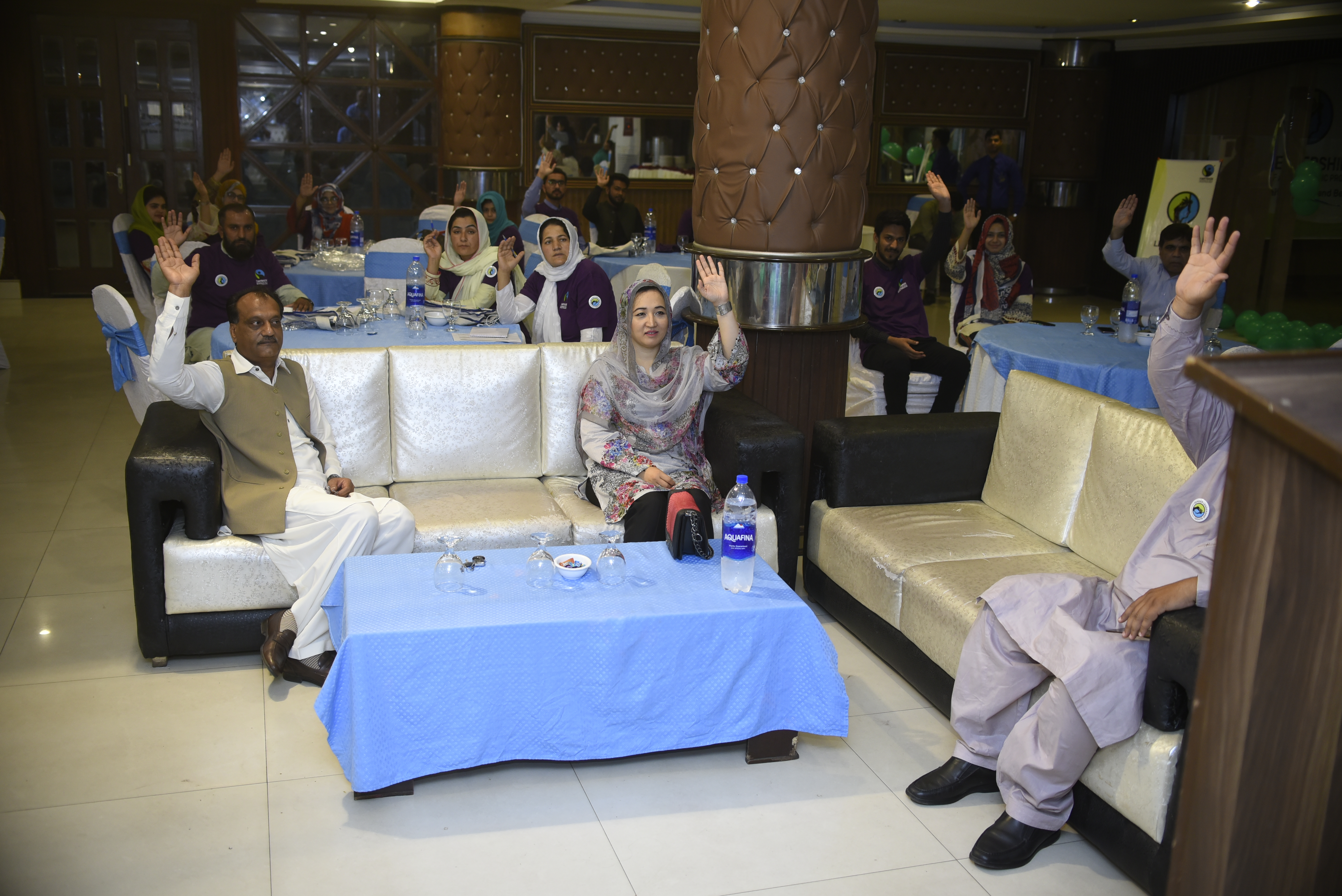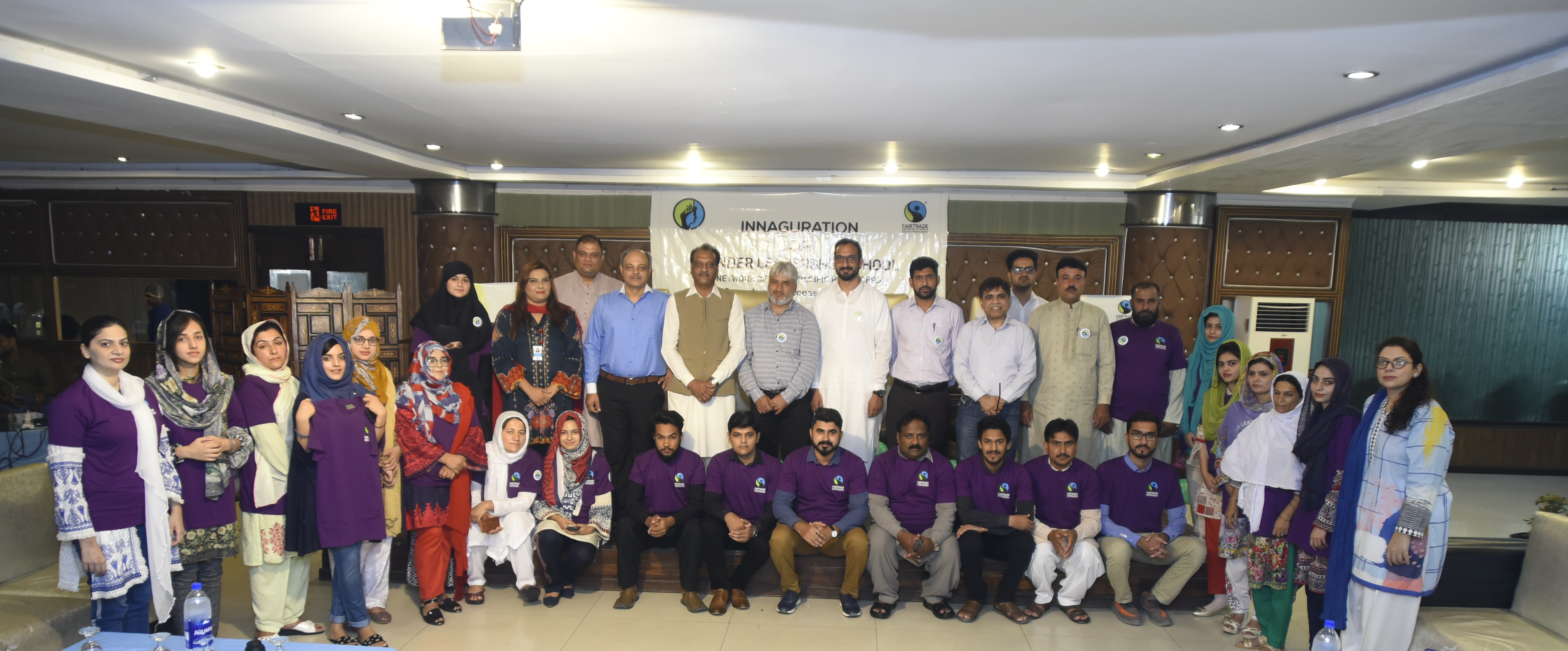
Network of Asia and Pacific Producers (NAPP) ‘4th Gender Leadership School’ was recently launched in Pakistan on July 11th. The launch was followed by Training of Trainers, attended by 30 participants (15 Females 15 Men) representing women, men and youth from Fairtrade certified organizations, with an aim to increase their capability to take leadership and management roles in their communities, organizations and households in the future.
The event was inaugurated by Chief Guests- Ms. Maryam Noman Chairperson of Women Resource, Sialkot Chamber of Commerce and Mr Amir Hameed Bhatti, Vice Chairman Sialkot Chamber of Commerce who ensured their maximum support for any future collaborations and offered NAPP Delegation from Pakistan, to meet up for a follow up meeting for future collaborations.
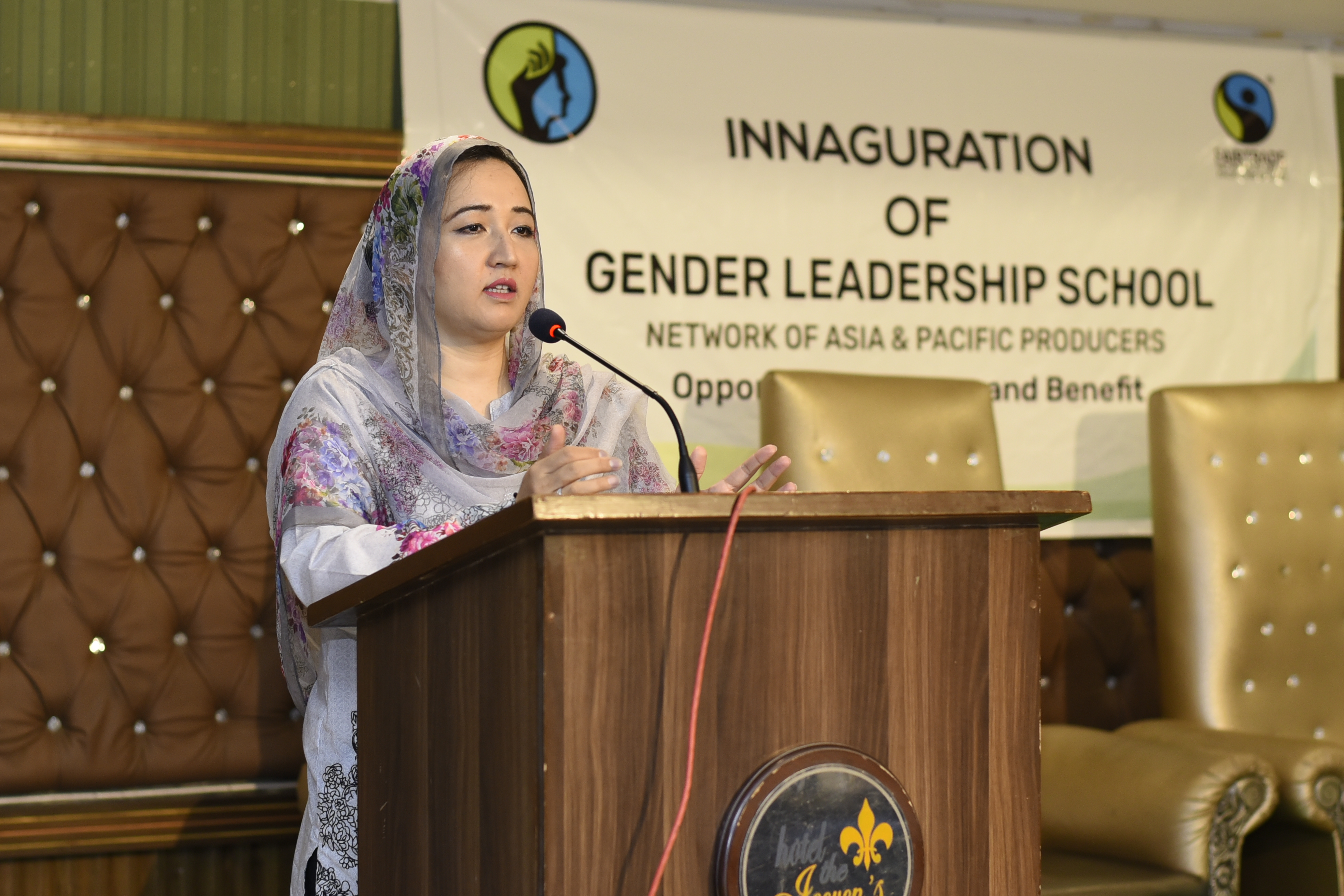
Mr. Assad Bajwa Chairman Pakistan Producers Network NAPP, Fairtrade Pakistan in his welcome speech highlighted on the recognition of the overarching roles and contribution of women and youth in agricultural and industrial sector by the overall Fairtrade system, and stressed on how the shared vision and gender strategy aims to improve women empowerment in producer organizations through leadership skills.
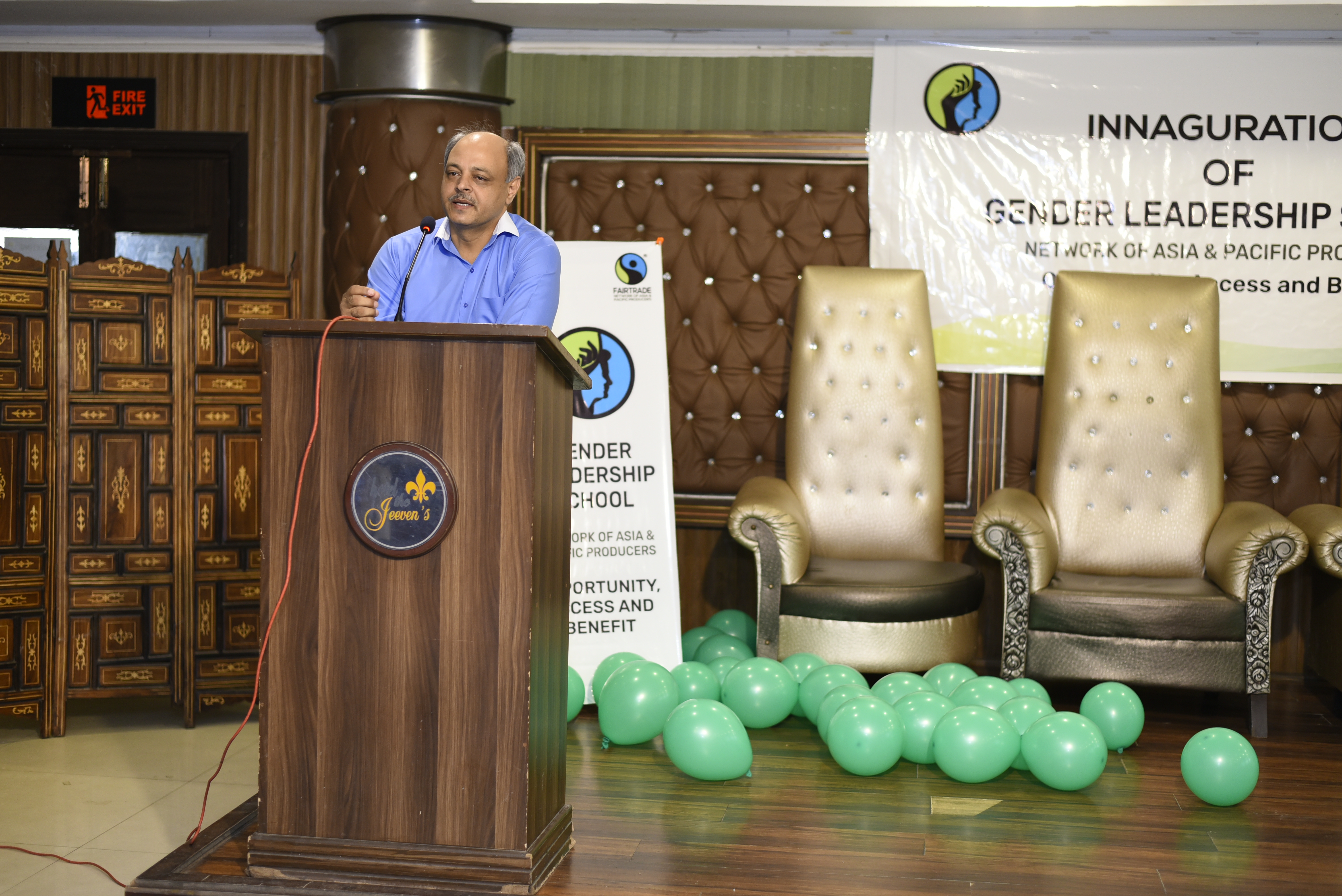
Ms. Sarah Anum, Program Officer, NAPP introduced Gender leadership school as a 1-year program that aims to develop new leaders who will become a flag bearer of NAPP Gender Program and Champions in their region. The leaders will play a crucial role in bridging the gap between men and women who represent different commodities across the system, and aid in combating poverty and unfair trade conditions which women continue to face in their daily lives.
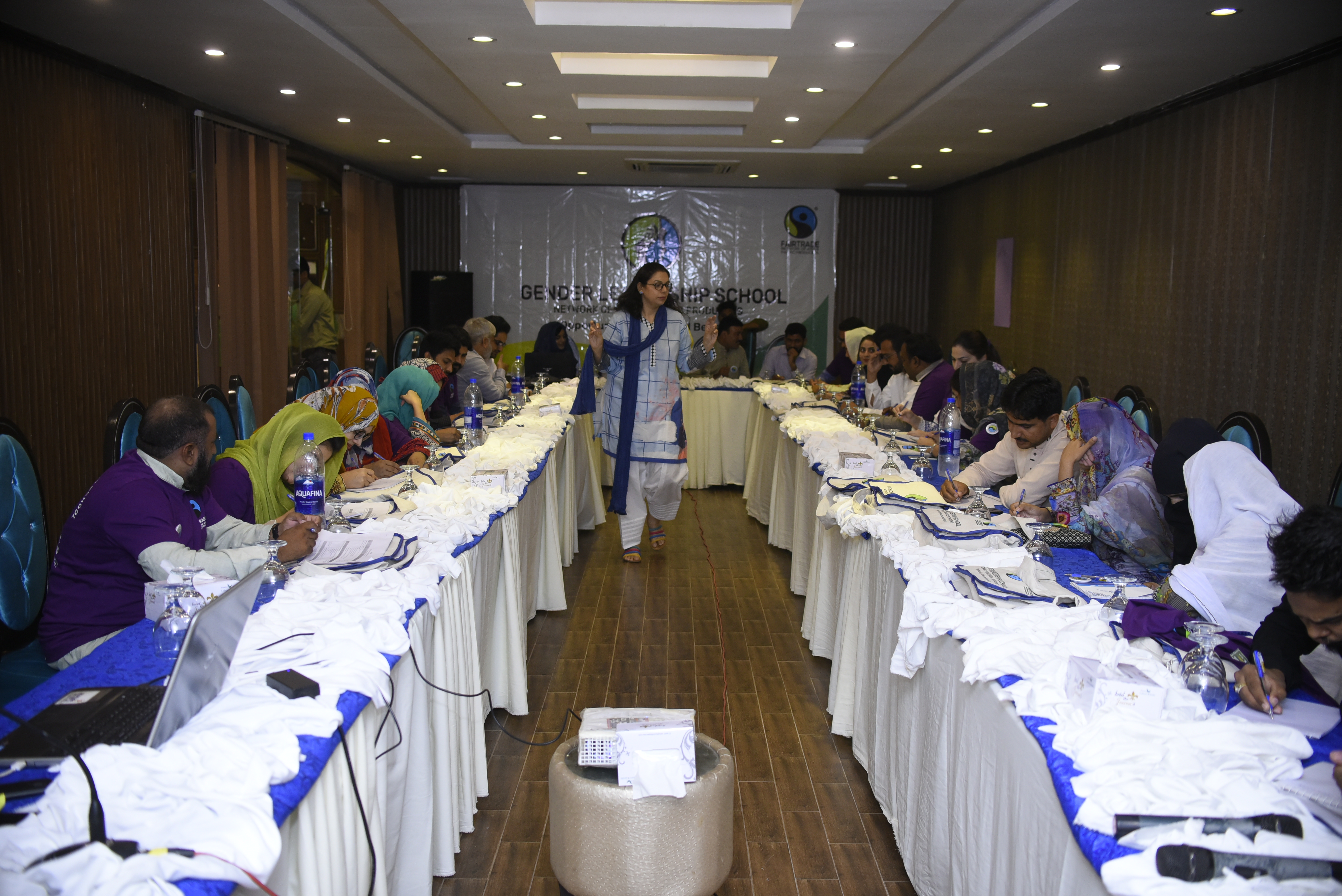 Mr. Malik Jameel, Farmer Chairperson NAPP, Fairtrade Pakistan thanked Fairtrade for their endeavors towards achieving gender mainstreaming in the Fairtrade system by empowering women and youth workers through strengthening their capacities and leadership skills.
Mr. Malik Jameel, Farmer Chairperson NAPP, Fairtrade Pakistan thanked Fairtrade for their endeavors towards achieving gender mainstreaming in the Fairtrade system by empowering women and youth workers through strengthening their capacities and leadership skills.
During the inaugural ceremony, a resolution was consented to be forwarded to Provincial Govt for the amendment in Labor Laws to extend social security benefits to women workers ,their spouse and children as well, which only covers male workers and their families in the current practice.
